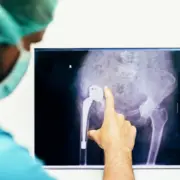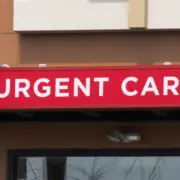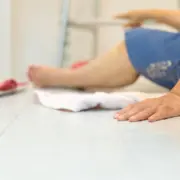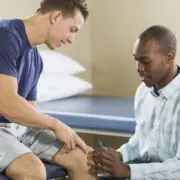How to Deal with an Orthopedic Emergency While at Work
Just because you sit at a desk all day doesn’t mean you can’t experience an orthopedic emergency on the job. Hazards are everywhere! Slipping over spilled coffee; straining your back while lifting a box of printer paper; suddenly experiencing frozen shoulder. So just because you aren’t a lumberjack or longshoreman doesn’t mean that you are immune from experiencing an orthopedic while at work. Here’s how you can deal with it should it happen to you.
Triage Yourself
The first thing to do is assess the severity of your condition. Is it an orthopedic emergency? In other words, might you need to go to urgent care or the emergency room, or can it wait to for an appointment with your orthopedist? Here are a few examples of what may be considered an orthopedic emergency.
· Following an orthopedic procedure such as a hip replacement knee surgery, you are experiencing shortness of breath, chest pain, and coughing – all of which may indicate a blood clot in the lungs.
· Following surgery on a lower extremity, pain and swelling in the calf. This could indicate thrombosis that might become a deadly embolus in the lung.
· A post-operative wound that starts to drain spontaneously.
· Following joint replacement surgery, a painfully swollen joint that accompanied by fever and/or chills, which could indicate an infection.
· If you are in a solid cast, pain, swelling and numbness in the fingers or toes. This is known as cast compression syndrome.
· Following lumbar spine surgery or an epidural spinal injection, severe back pain along with weakness in the legs and difficulty empting your bladder. This could indicate internal bleeding around the spinal cord.
· Following orthopedic surgery, an accidental fall or twist of a post-operative limb followed by a noticeable increase in pain. This could indicate several things, to include a change in the fixation of a fracture, a new fracture, or – if you’ve recently had a total hip replacement – a dislocation of the hip joint.
· Groin or thigh pain followed by an inability to walk. This could indicate an osteoporotic fracture of the hip.
Emergencies that are not post-operative
Other orthopedic emergencies that could happen at work include a broken or fractured arm or leg, a dislocated shoulder, or a sprain or strain. If you are able to move, seek medical attention right away. If you can’t move, have emergency medical attention come to you. Many offices have emergency medical personnel on standby; if you don’t be sure to clear a path so responders can come. Bring your purse and cell phone with or have a colleague accompany you as you may be laid up for a while.
If your orthopedic emergency happens on the job and is work-related, be sure to capture all the data – place, witnesses, photographs – in case you need to file a workman’s compensation claim.
If you experience any sort of head trauma such as a concussion, see a medical professional immediately.
In the event of an orthopedic emergency, don’t hesitate to visit – or have someone transport you – to an orthopedic urgent care facility. There, you can receive immediate care, as opposed to a hospital emergency room where it may take time to see an orthopedic specialist.
Colorado Center of Orthopaedic Excellence in Colorado Springs provides its patients with optimal comprehensive orthopedic care and primary care (non-operative) sports medicine on an urgent care basis. Whether you have an orthopedic emergency at work, home or in the field, our specialists are readily available to provide you with world-class care and service. Our board-certified orthopedic surgeons will diagnose the condition and explain your treatment options. Call us at (719) 623-1050 today for an appointment.






